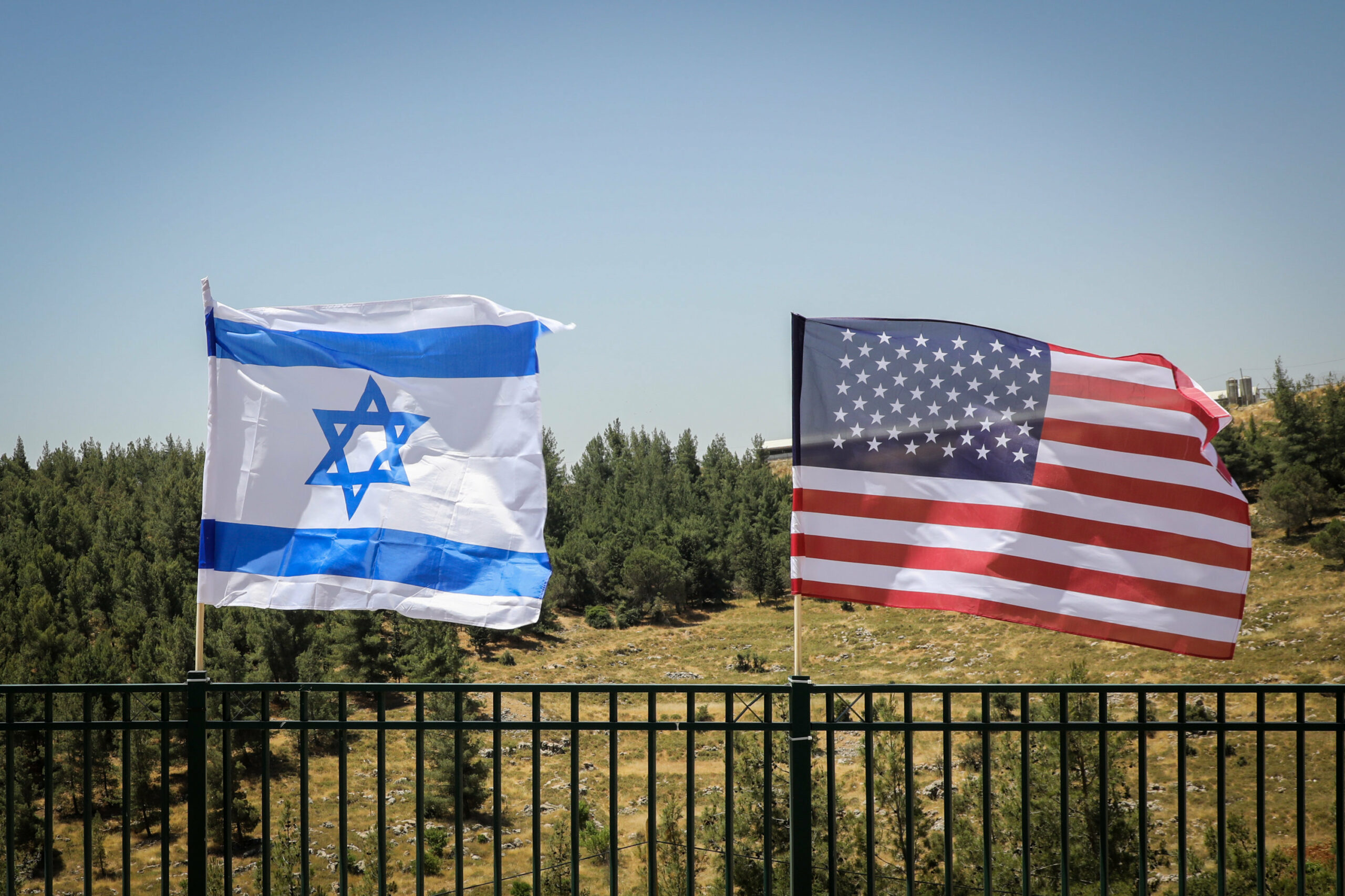In his efforts to get Donald Trump elected in 2016, Marc Zell found himself dialoguing with religious Jews and evangelical Christians. While the two groups appeared at first glance to be incredibly divergent, common interests including a love for Israel made for a powerful alliance that helped the Republican candidate win an upset victory.
Zell is an American-Israeli lawyer who moved to Israel in 1988. A lifelong conservative, he became the chairman of Republicans Overseas Israel. Zell worked tirelessly campaigning for Donald Trump in 2016. To do this, Zell, an Orthodox Jew, had to ally with Trump’s evangelical supporters.
“I have had a very meaningful connection with the evangelicals since 2016,” Zell told Israel365 News. “And I’ve maintained that connection ever since. I believe that the evangelical community in the United States is an important constituency for Israel. As a rule, the American evangelicals are very pro-Israel and I look at them as real allies in a world where we don’t have many allies.”
The connection between evangelicals and Jewish Israelis is based on mutual political interests. 81% of evangelicals voted for Trump in 2016. While campaigning for a US candidate in a foreign country may sound pointless, a survey showed that there were an estimated 150,000 US citizens currently living in Israel who were eligible to vote in the US elections. This is now believed to be closer to 200,000. Of those, 80,000 exercised that right. 85% of them voted for the Republican candidate.
This makes the Christian evangelicals a close political ally for the Israeli Americans. In comparison, an estimated 80% of secular US Jews voted Democrat.
“The evangelicals and the Orthodox Jews both have a commonality in our espousal of faith, albeit with significant differences,” Zell said. “And that is not a given universal concept, unfortunately, in today’s world. So we have that point of shared social values that are being expressed in the political arena.”.
Zell noted that this alliance that seems so organic now was not always so.
“Traditionally, the Jewish community in the United States was very reluctant to join hands with evangelical Christians,” Zell noted. “This was due to the explicitly Messianic agenda that is essentially anti-Jewish.”
“Cooperating with evangelicals has required Orthodox Jews that are active in pro-Israel activities to sublimate those kinds of concerns,” he added. “We do so in order to cooperate for the pressing and immediate concerns. We need to strengthen Israel for the survival of the Jewish people. For their part, the evangelicals realize that the survival of Israel is also essential for the survival of the USA. We clearly have very different visions of the end of days. But in the meantime, we can cooperate with one another.”
This alliance is especially relevant to the Jewish settlements in Judea and Samaria. Roughly one in ten people who moved to Israel from the United States currently live in Judea and Samaria. A rate that is three times that of immigrants from other countries of origin. In her book, “City on a Hilltop: American Jews and the Israeli Settler Movement,” Sarah Hirschorn, associate professor of Israel studies at Northwestern University, estimated that American citizens represent 15% of the overall settlement population, a significantly disproportionate figure. And an outsized portion of these settlers is Torah-observant Jews. Zell lives in Tekoa in Gush Etzion, placing him in this demographic.
“Evangelicals are, perhaps, the only powerful political force outside Israel that supports the rights of Jews to settle in the Biblical heartland. They do so out of a belief in the Biblical promise that God will give the land to the descendants of Abraham, Isaac, and Jacob,” Zell said. “This is certainly not true of secular Jews in the US, many of whom openly oppose Jews settling in Judea and Samaria.”
“But the evangelical community is not a monolithic group,” Zell warned. “There are Christian groups that do not support Israel and choose to support the Palestinians. And studies have shown that younger evangelicals are less predisposed in favor of Israel.”
One survey commissioned by University for North Carolina at Pembroke researchers reported that between 2018 and 2021: support for Israel among young evangelicals dropped from 75% to 34%.
As Zell begins to gear up for the 2024 US presidential election, he is taking a hard look at this alliance. Zell held off on supporting Trump in the 2016 campaign and was openly critical of him in the primaries. He is circumspect in supporting him in 2024.
“Donald Trump was great to Israel,” he said. “He had powerful support among the evangelicals in 2016 but lost a significant part of that in 2020 and polls show he has even less support for his 2024 run.”
“When it comes to supporting Israel, that is something the evangelicals and Orthodox Jews have in common,” Zell said. “But we need to wait and see what other Republican candidates step up and what they have to offer.”




